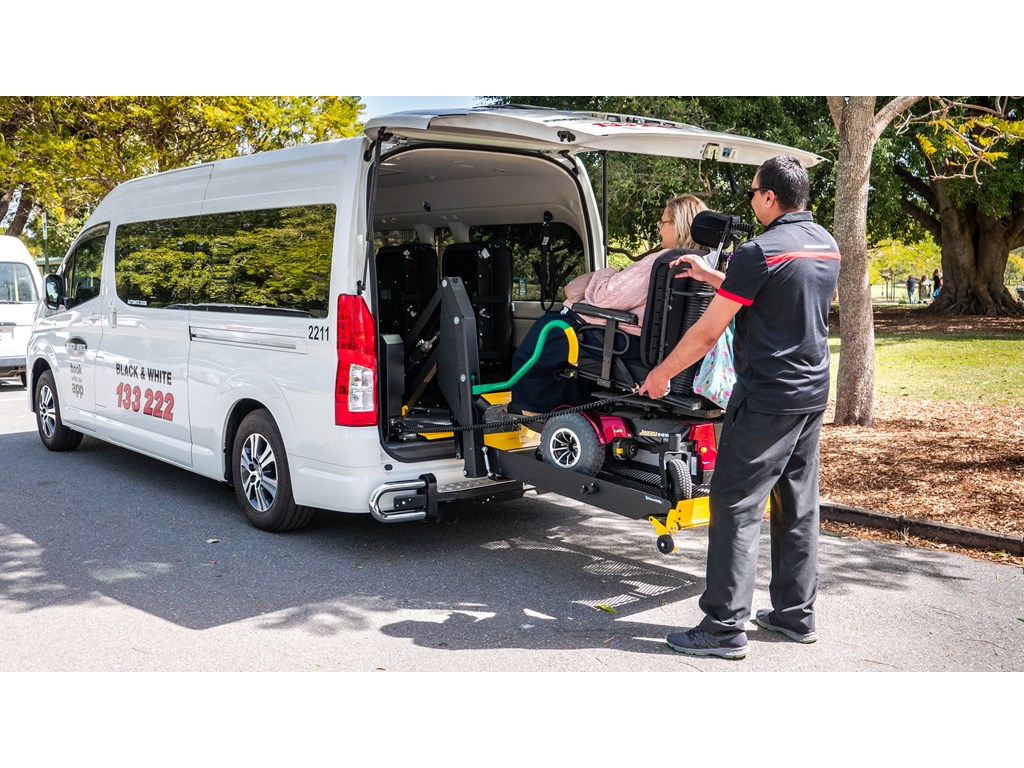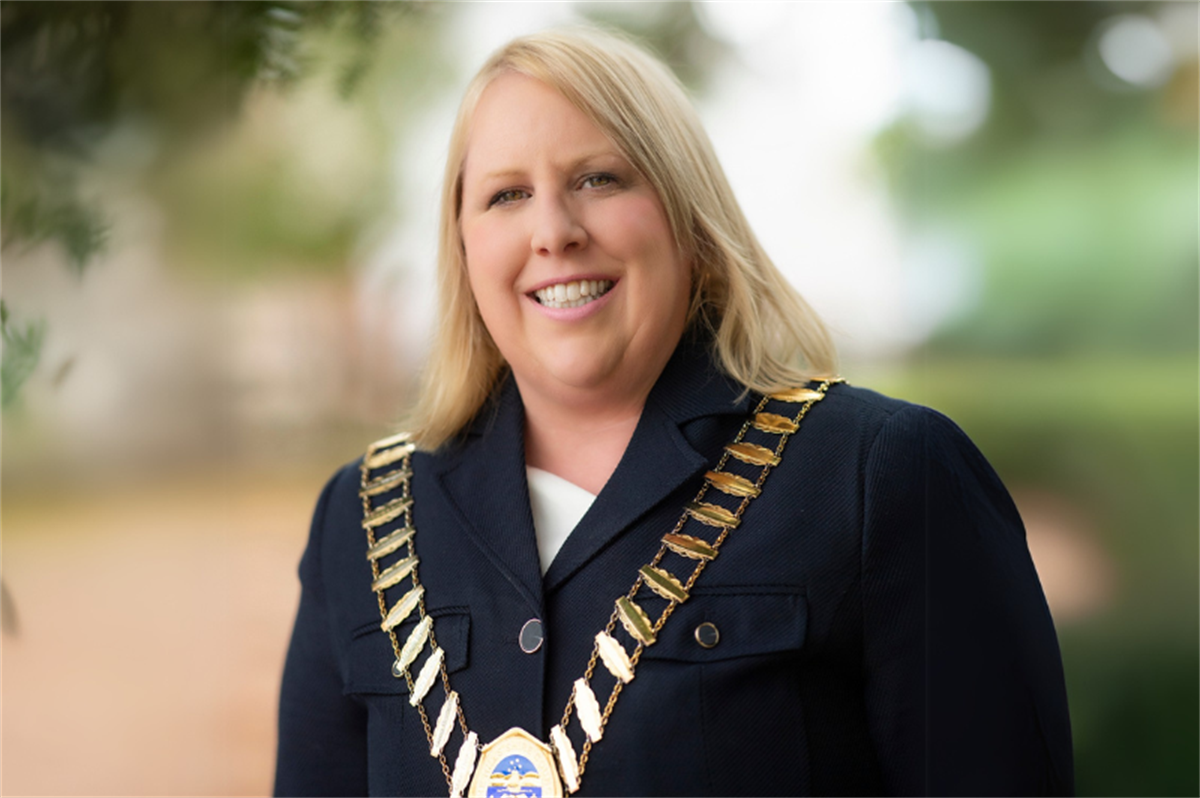
- The Miles Government will provide more than $7.5 million over four years in the State Budget to improve taxi accessibility.
- The money will increase the Lift Payment from $20 to $25 to help incentivise taxi drivers to complete eligible wheelchair trips and double the Lift Payment to $50 on Christmas Day.
- It comes as the Miles Government extends the $21 million Wheelchair Accessible Taxi (WAT) Grant Scheme for an additional 12 months and increases the funding for eligible vehicles.
More than $7.5 million has been included in the state budget to make it easier for Queenslanders with disability to travel in taxis beyond the end of the decade.
The budget will include $7.5 million for four years from 2024-25 to increase the Lift Payment, which is paid directly to taxi drivers who complete wheelchair jobs for members of the Taxi Subsidy Scheme (TSS). A further $1.8 million ongoing will be included to sustain the increased Lift Payment from 2028-29.
The Miles Government’s $21 million Wheelchair Accessible Taxi (WAT) Grant Scheme will also be extended for another year until the end of June 2025 to support Queenslanders with disability to move around their community.
The WAT Grant Scheme funds half the cost of a new vehicle to make it easier for operators across the state to provide accessible taxi services.
Applications for the WAT Grant Scheme have also received a boost with the maximum funding amount per application being lifted from $45,000 to $55,000.
Queenslanders have benefitted significantly from the WAT Grant Scheme with 284 WATs already on the road and a further 107 approved applications currently being processed, totalling more than $17 million.
Other initiatives helping to ensure Queenslanders with a disability get safe access to taxi services, include:
- Continued funding of the Taxi Subsidy Scheme to ensure that Queenslanders with a disability are supported in their travel needs, with almost 1.25 million TSS trips taken in 2022-23 by almost 50,000 TSS members. The Queensland Government pays half the total taxi fare, up to a maximum of $30 per trip, as well as subsidised taxi travel in other Australian states and territories.
- A regulatory requirement that the incentive payment for drivers to deliver trips to TSS passengers in wheelchairs must be paid in full to the driver; and
- A new web page regarding requirements and helpful information for industry and passengers about travelling with support animals.
Recent taxi industry-related measures have also helped to ensure all customers get a safe and fair service, including compliance activities, resetting maximum fares, and legislative changes to strengthen requirements for use of taxi meters to prevent overcharging of customers.
As stated by the Minister for Transport and Main Roads Bart Mellish:
“Access to reliable and accessible transport services for every Queenslander is a priority.
“Being able to catch a taxi when using a wheelchair can make a huge difference in the day-to-day lives of Queenslanders because it means better access to appointments, services and social gatherings.
“Our program has a strong track record with more than half of the Wheelchair Accessible Taxi fleet in Queensland approved to be replaced with new vehicles since the scheme launched in 2019.
“The one-year extension of the Wheelchair Accessible Taxi Grant Scheme will enable operators to continue to access funding assistance to replace written-off vehicles and aging taxis, and replace sedans with Wheelchair Accessible Taxis in certain areas.”
As stated by Minister for Seniors and Disability Services Charis Mullen:
“This is a vital funding boost, one that will support those living with disability in the community, and people who support them.
“Our Budget recognises the challenges all Queenslanders with disability face when it comes to transport.
“The extension of our WAT Grant Scheme and our funding uplift provides further incentive for eligible drivers to complete wheelchair trips and provides greater service for vulnerable Queenslanders.
“We will continue to work with industry and all levels of government to progress reforms to ensure all vulnerable people have the supports they need.”
As stated by Queenslanders with Disability Network CEO Michelle Moss:
“People with disability rely on taxis everyday to get them to work, medical appointments, grocery shopping and to catch up with family and friends and forms part of their essential public transport infrastructure.
“It is important that people with disability have confidence that the wheelchair accessible taxi they ordered is going to turn up and turn up in a timely way.
“We acknowledge and commend the commitments in the budget to increase the lift fee along with the extension of the modernisation of the WAT fleet as a step forward and remain optimistic that this will be a catalyst to improve and deliver much needed reliable services in contemporary vehicles for Queenslanders with disability.”
As stated by Taxi Council of Queensland CEO Blair Davies:
“We commend the Government on extending its commitment to partner with industry on modernising Queensland’s Wheelchair Accessible Taxi fleet.
“We want all of our customers to have the best taxi experiences possible, but especially our customers who have the extra challenge of needing to travel with their wheelchairs.
“TMR’s 50:50 funding for taxi operators to replace aging accessible taxis with new models is crucial to making that happen.
“The new Wheelchair Accessible Taxis ride better, they are safer, and they are also more efficient. This funding program is a win-win for taxi passengers with disability, our cabbies who service them, and also the environment.4
“The Budget’s increase to the co-funding cap recognises the higher purchase prices of these specialised vehicles today. Similarly, the increase in Lift Fees payable to cabbies providing trips for wheelchair passengers brings these incentives now in line with rises in living costs since they were first introduced in 2016.”
Head online to







